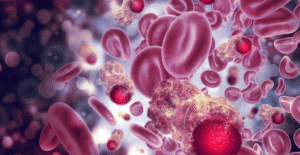Stem cell treatments have gained a lot of attention in recent years, with many patients curious about the possibilities they offer. However, there is a lot of misinformation surrounding stem cells and their potential applications. In this blog, we’ll explore the common myths and the facts you need to know to make an informed decision about stem cell therapy.

Myth #1: Stem Cell Treatments Are Experimental and Unproven
While stem cell therapy is still evolving, it is far from experimental. Stem cell treatments are already being used to successfully treat a range of conditions, such as joint injuries, arthritis, and heart disease. In fact, stem cell therapy is now a mainstream treatment in many parts of the world and continues to advance as new discoveries are made.
Myth #2: Stem Cell Therapy Is Only for Severe Conditions
Stem cell therapy is not limited to severe conditions. It can also be used as a preventive measure to help promote overall health and wellness. For example, stem cell treatments can help slow down the aging process of tissues, improve skin quality, and even boost energy levels. These treatments can be a proactive approach to maintaining your body’s health.
Myth #3: Stem Cell Therapy Is Painful and Invasive
One of the key benefits of stem cell therapy is that it is minimally invasive. Unlike traditional surgeries, stem cell therapy is a non-surgical treatment that requires only a small procedure to collect stem cells, usually from the patient’s own body. This means a quicker recovery time and less discomfort compared to traditional treatments.
Fact: Stem Cells Are Regenerative Powerhouses
The true power of stem cells lies in their regenerative ability. Stem cells can repair and regenerate damaged tissues, which makes them a powerful tool in treating various diseases and injuries. Whether it’s rebuilding cartilage in a damaged joint or regenerating heart tissue, stem cells provide a natural alternative to traditional healing methods.




